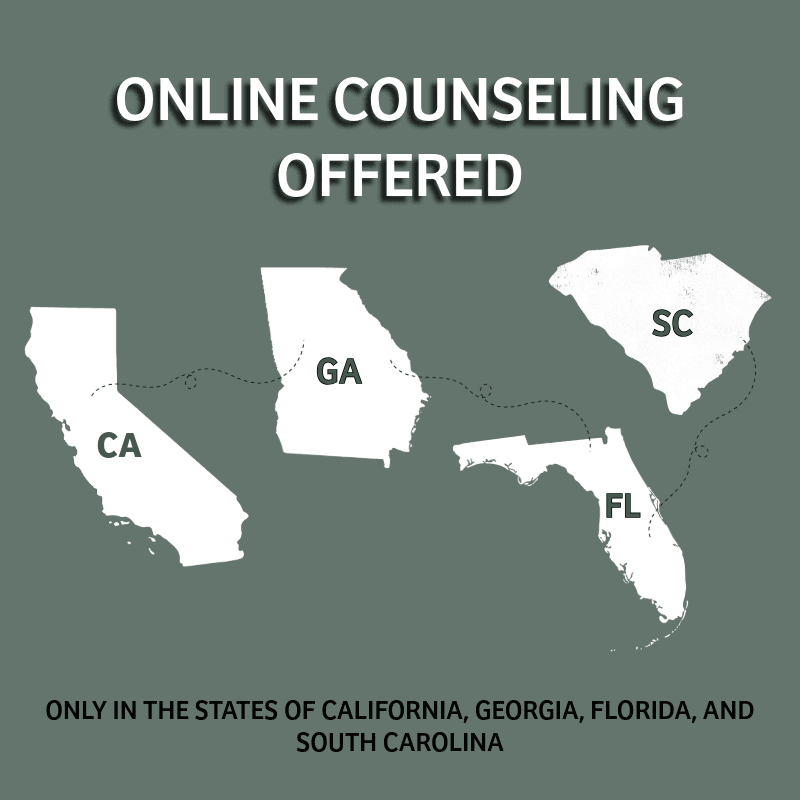Intake Consultation Confirmed, we will call you at your scheduled time!
Save time on the intake call by setting up your client portal, click here:
Save time on the intake call by setting up your client portal, click here:
Learn what to expect & see answers to common questions below!

Commonly Asked Questions:
Below you will find answers to commonly asked questions.
Also, we provided resources for you while you wait for your 1st session:
What can I expect during the intake session?
In this meeting, the focus is getting to know your counselor and your counselor getting to know you. You can expect to explore your past, make goals for the future, and leave knowing the plan for counseling. New Clients can expect to go through the informed consent/Intake paperwork along with answering questions regarding biological, psychological, and social information.
What are the benefits of counseling?
Counseling allows space for you to explore, process, and work through your life and difficult emotion. The general goal of counseling is to learn how to manage difficult emotion and/or process a difficult past or current situation. Our goal is to help you feel more in control of your life and have a clear vision of where you are going and how to get there. Counseling is an intimate relationship that is unique from any other. We are not here to tell you what to do (coach) or agree with everything you say (friend). We are here to walk alongside you to help you find your inner strength and heal from pain. The relationship with your counselor is foundational to the experience. The first session serves to make sure the counselor is the right fit for you personally and professional.
Are there any risks involved with counseling?
Risks involved may include: Feelings of fatigue or a heightened state of sensitivity after a session. We suggest clients engage in 15-20 of your self-care practices following a session, if possible (walking, reading a book, meditation).
Are you going to tell my parents all the details of our sessions?
If a parent requests information, only general goals set in the first session will be provided. The only time confidentiality is broken is if the client is a threat or harm to themselves, someone else, or if current abuse is disclosed.
See below for more details based on the age of the child:
• Parents of younger children 2-10: Can expect more details and assistant in how to set boundaries or offer support at home.
• Parents of Pre-Teens 10-13: How much information is shared depends on the maturity of the child. It will be something between the
younger children and the adolescents (see above and below).
• Parents of Teenagers 13-17: Can expect general details to protect the privacy of the adolescent. Parents will know the goals of therapy,
basic progress made, recommendations for home, and if there are any emergencies.
• Adolescents 18 are considered adults by Georgia law and own their information. For parents to have access to communication with the
counselor, a release of information must be signed by the 18 year old. (This includes making payment or scheduling appointments).
For virtual sessions, does an adult have to be home when we have sessions with minors?
YES. Children under 15 require and adult in the house. We request the child be alone in their room for privacy.
Adolescents 16-17 can drive and are okay to be alone in the home or in therapy from their parked car (for privacy).
If I move to another state, can I continue working with my therapist?
Counselors are licensed by the state. If you move, sessions will need to be transferred to another therapist that has licensure within your new state of residence.
Do we accept employee benefits and contracting with those companies?
Employer Payment Programs contract with each counselor one on one. We are happy to connect with your employer benefits firm to discuss moving forward. Please note: Typically, only 3-5 sessions are covered. You will be responsible for payment of sessions after the allotted sessions given at the counselor’s rate.
If I am involved in legal cases, can I receive free services until the case is finalized for possible payment?
Each session’s fee is due at the time of service. If you are in a legal battle that could cover the cost of counseling, you will have to be reimbursed for your fees from the case.
What if I don’t know or have any goals when starting therapy?
Part of the counselor’s job is to help you explore what is holding you back and help you to define your own goals. Sometimes you know you want something different but cannot describe it. Counseling can help you put words to what you hope for.
How is online therapy different from traditional therapy?
Online counseling is traditional therapy, the only difference is how you connect with your counselor (face-to-face vs. an online portal). With online therapy, you can see and hear your counselor just like in-person. The only difference is you are not in the same room. Different people prefer different settings. Some want the personal touch of face-to-face. While others like the convenience of online counseling. You can discuss the pros and cons with your counselor.

Mental Health Resources
JCAC YouTube Channel
Our Channel Includes Videos on:
*** Depression & Anxiety in Children, Teens, and Adults.
*** Learn how to talk to someone if they are suicidal.
*** Tools to Manage Anxiety, Self harming, and intrusive thoughts.
*** Parenting Support and Strategies.

